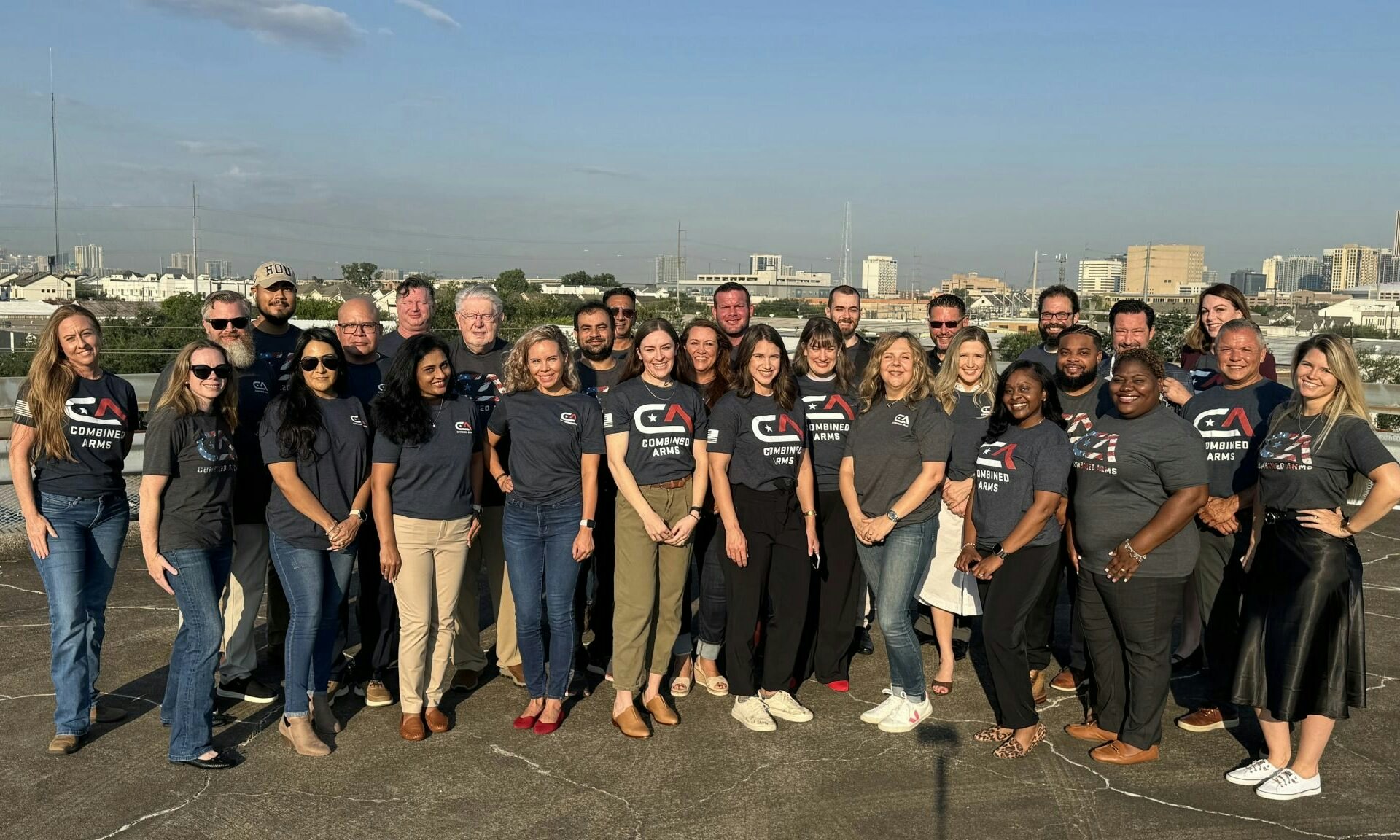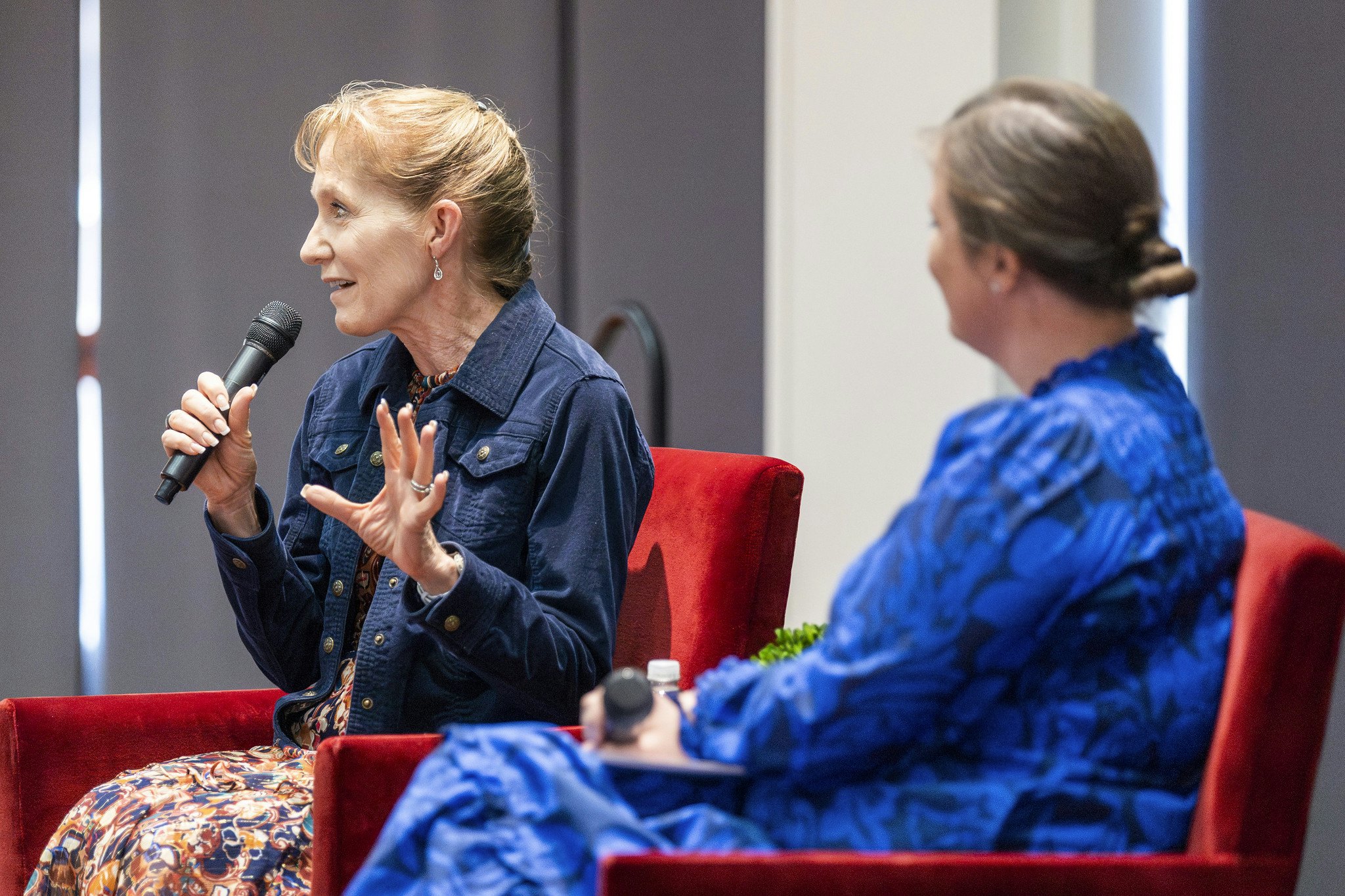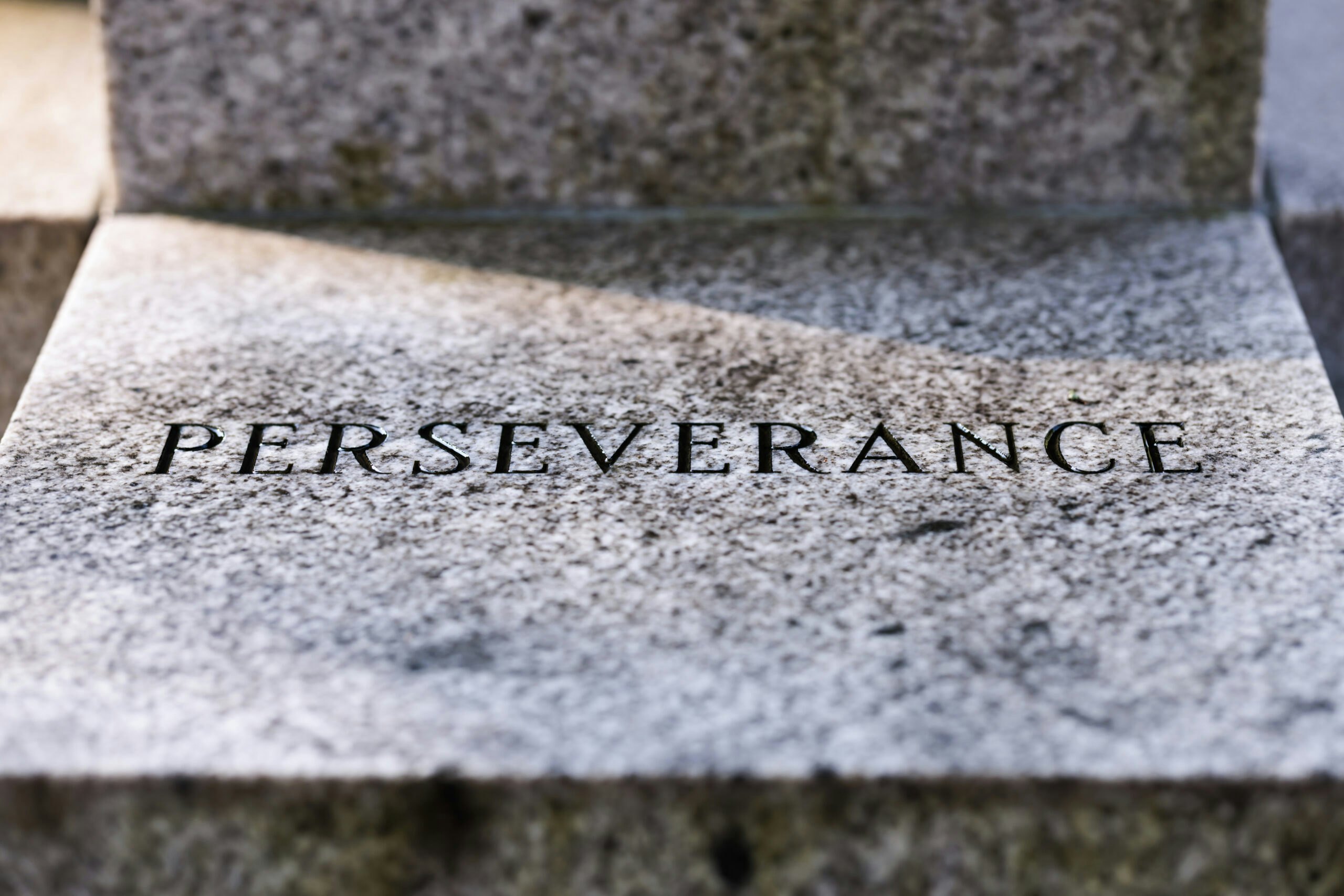Claudia Bergheger, 2022 Stand-To Veteran Leadership Program Scholar and Associate Director of Operations for Vanderbilt University’s Institute of National Security (launching September 2024), shares her work connecting service members and veterans to careers in academia and how the Veteran Leadership Program taught her to lead with confidence.
Please tell us a little bit about yourself and your personal leadership project.
I was born in Mexico and came to United States when I was 6 years old. While my journey was tough, it was also very fulfilling. In America, I get to dream and pursue my dreams, a privilege that not everyone gets to experience in many parts of the world. I’ve always felt a strong responsibility to give back to this country that has given me so much. Today, I am fortunate to fulfill that responsibility through my work as the Associate Director of Operations for Vanderbilt’s Institute of National Security that will be launching in the fall. Prior to this role, I supported the establishment of Vanderbilt’s Department of Defense SkillBridge Program to help employ transitioning service members in the field of higher education. In 2022, I was selected to participate in the Stand-To-Veteran Leadership Program to share about this initiative, helping strengthen the bridge between military service experience and careers in academia.
Please give us an update on what you have been working on since completing the Stand-To Veteran Leadership Program.
After completing the Stand-To Veteran Leadership Program, I got to oversee the final steps in establishing Vanderbilt’s SkillBridge program, which now serves as a dedicated talent pipeline for transitioning service members and veterans seeking employment at Vanderbilt University. I got to manage Vanderbilt’s 2023 and 2024 annual Summit on Modern Conflict and Emerging Threats and launched the inaugural lecture series on Modern Conflict and Emerging Threats, hosting a former secretary of defense, a retired U.S. Army general and U.S. ambassador. In the last year, I worked with university leadership and the School of Engineering to help draft a 10-year business plan to imagine what a dedicated center to national security would look like on campus resulting in Vanderbilt’s Institute of National Security.
Which lessons learned during the Veteran Leadership Program have stayed with you the most, and how have you put these lessons into action?
The Stand-To-Veteran Leadership program prepared me to lead with confidence and to own my ability to do great things. When I started the program, like many others in the room, I felt a deep sense of imposter syndrome. I knew I carried the knowledge and was very capable of pursuing the projects I was working on, but a big part of me still felt like it wasn’t my place. I found inspiration and lessons through the speakers and in every conversation held with my fellow classmates and the staff. Everyone in the program believed in my ability to lead, but it was up to me to believe it too. I went from being quiet about my leadership abilities to embracing them and leading with confidence. The Stand-To Veteran Leadership Program surrounded me with leaders of varying experience levels who coached and prepared me to become the leader that I am today.
Can you share what drives you to work on this important topic and what you feel we aren’t paying enough attention to regarding national security?
I am motivated by the opportunity to drive impact in the lives of the men and women that work to keep our nation safe. I get to take part in establishing the premier institute of national security for our nation and driving results through the events we host, the educational opportunities we offer our students, and supporting the staff and faculty that innovate and conduct research alongside the men and women on the frontlines. National security is everyone’s business, and, in order to solve the conflicts and threats that lie ahead, we must turn to interdisciplinary practices. This means bringing together people with different expertise and backgrounds to work together to create solutions and solve problems. Every background and profession can play a role in helping mitigate the threats our nation faces every day.
Can you discuss the impact you hope to see Vanderbilt’s Institute of National Security have and what success looks like?
The institute is on a mission to harness Vanderbilt’s expert faculty, strategic partnerships, and interdisciplinary approach to develop leaders who address critical national security issues through education, innovation, convening, and advising. One of our main focuses is our students and providing them with the resources and opportunities to explore careers in national security. Our students will be equipped with the skills needed to solve problems and innovate, utilizing both technical and interpersonal skills, positioning them as highly sought-after young professionals poised to become the next generation of leaders in national security.






























